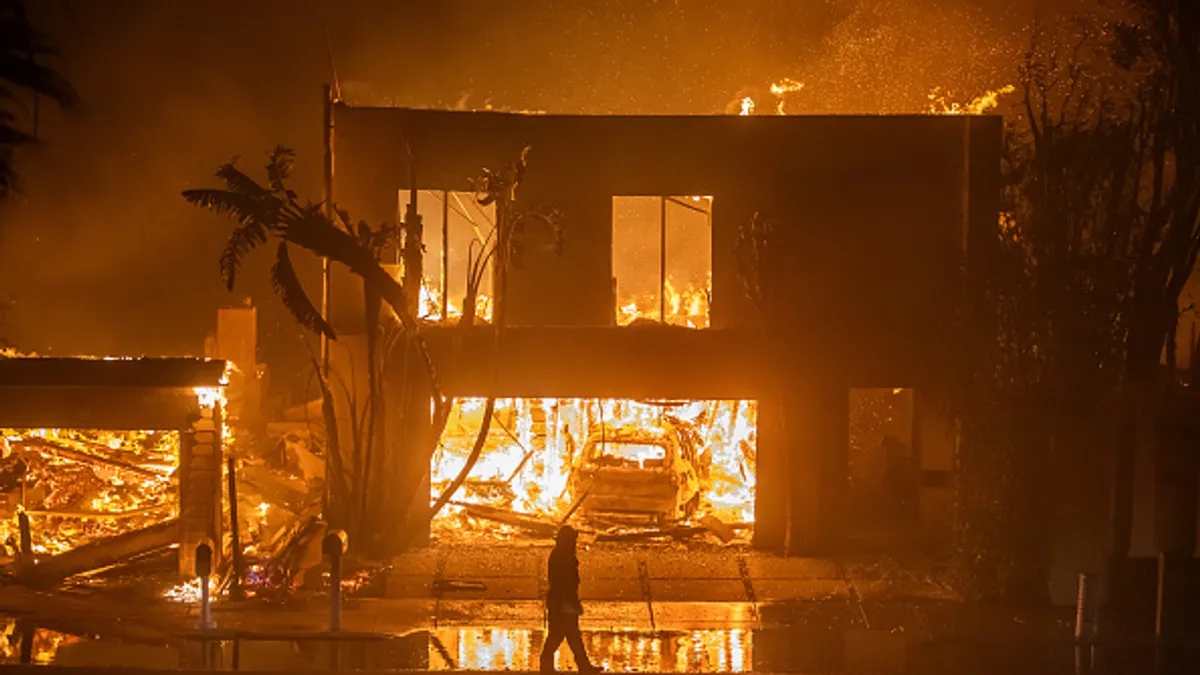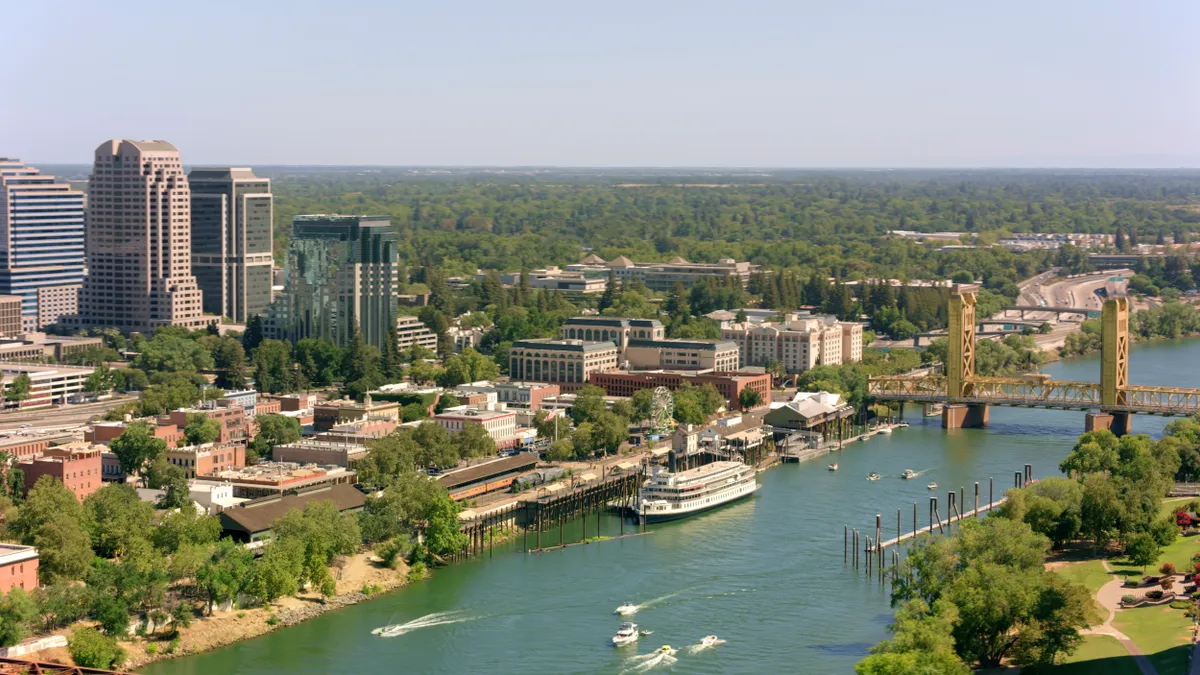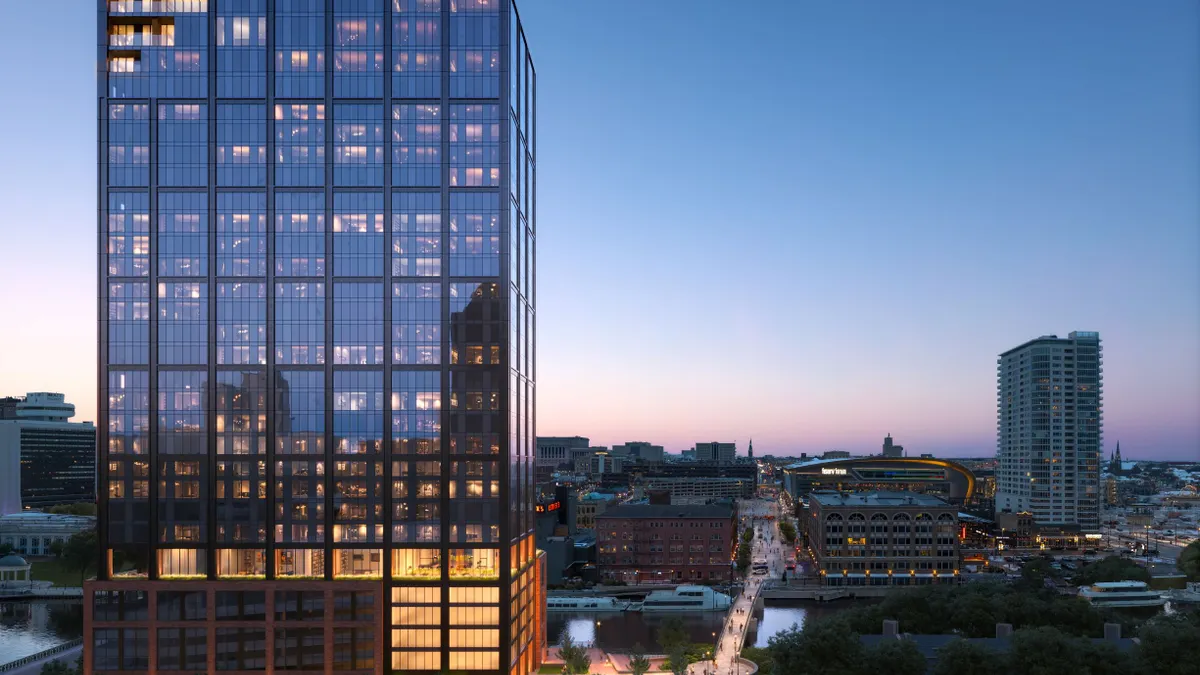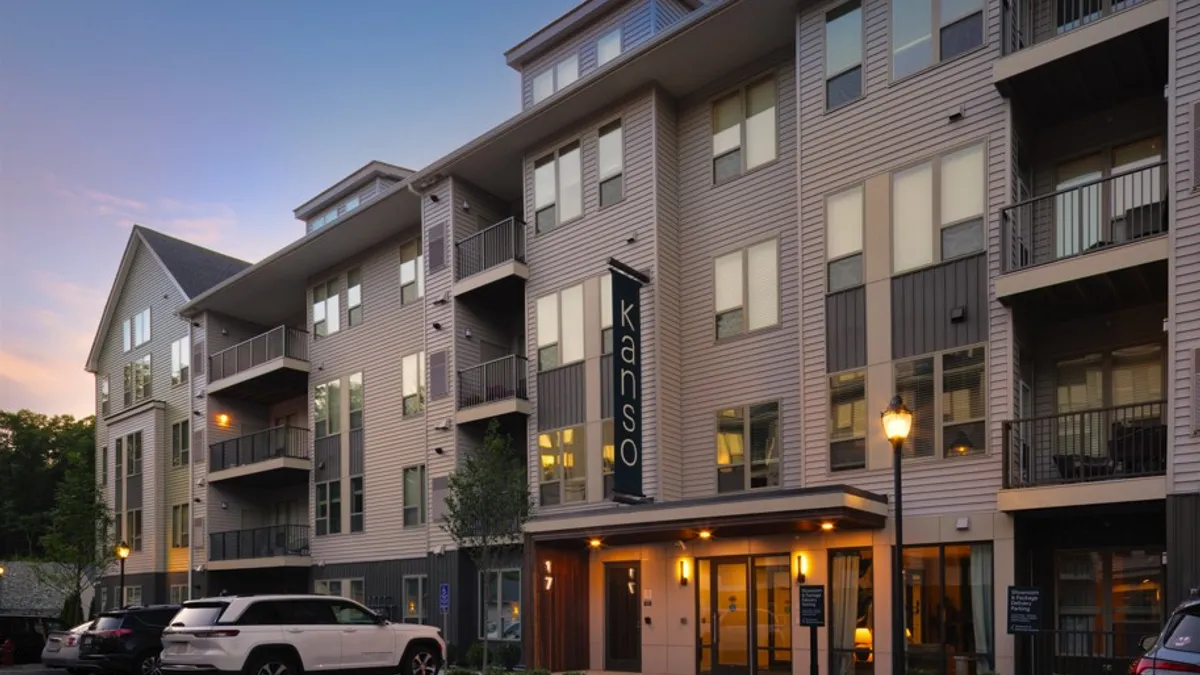Although the New York Times says 92,000 people are under evacuation orders due to the most destructive wildfires ever to hit the Los Angeles area, several major multifamily property owners have reported no damage so far to their properties there.
Camden Property Trust indicated last week that its apartment communities in the area had not sustained damage, and AvalonBay Communities said on social media that none of its properties had been evacuated.
However, not everyone has been so lucky. Daniel M. Yukelson, executive director and CEO of the Apartment Association of Greater Los Angeles, told Multifamily Dive that it does not yet have an accurate account of multifamily properties lost in the wildfires.
”We have had several members report to us that they have lost property, however,” Yukelson said.
There were 58 multifamily properties financed with Commercial Mortgage Backed Securities in the evacuation areas as of last Thursday, according to a report that data firm Trepp shared with Multifamily Dive. More properties and lives could be at risk in the coming days as the fires continue to burn.
As the situation evolves, a number of apartment companies are offering support while analysts evaluate what the rent and operational pictures will look like once the fires end.
Community support
In Camden’s release, the REIT announced that it is temporarily waiving application fees, offering flexible lease terms and freezing new lease rates at its communities in the area. Additionally, it is mobilizing its Camden Cares charity across California to collect essential items for those affected by the wildfires.
“Our top priority during times like this is focusing on the health and safety of our residents and team members and helping our neighbors who have been impacted by this devastating event,” said Chairman and CEO Ric Campo in the press release.
Alexander Goldfarb, managing director and senior research analyst for investment bank and financial services company Piper Sandler, expects other REITs may follow Camden’s lead,
“Given the RealPage litigation, we think it makes no sense for the industry to do anything that looks” like it’s not putting residents first, Goldfarb said in a recent report shared with Multifamily Dive.
Other apartment firms are also stepping up. Los Angeles-based apartment owner and developer Cityview announced that it is working to support team members who have been evacuated and that it made donations to the Los Angeles Fire Department Foundation and California Fire Foundation in an announcement on its website. AvalonBay announced that it has established an American Red Cross donation site.
Rent implications
As the firefighters continue to battle the flames and residents deal with the fallout of destroyed homes, offices and other buildings, analysts are looking to the near future and how the area will be affected by an increased lack of housing.
For one thing, apartment vacancies will tighten. In a recent report, Haendel St. Juste, managing director of REITs for investment bank Mizuho Securities, wrote that the wildfire would likely boost landlords in Los Angeles County as displaced residents seek shelter, “suggesting higher occupancy and better pricing power into peak leasing season.”
However, some housing providers will inevitably go too far. Already, there are reports of price gouging on rents, according to NBC News. However, the state's penal code explicitly prohibits rent increases of more than 10% once an emergency declaration has been made, according to a statement from the National Apartment Association’s President and CEO Bob Pinnegar.
“Our members are trained professionals who follow the law. Reports of price gouging are far from the norm, and NAA unequivocally condemns any such behavior,” Pinnegar said.
Investment and safety implications
While people need housing in the LA area, Goldfarb noted that government-imposed rent freezes or moratoriums could be on the horizon.
“Should such moratoriums return, we believe institutional capital would be pushed away from investing in new product as underwriting the risk of government control becomes too daunting,” Goldfarb wrote.
In the long term, Goldfarb thinks REITs will “enhance their location underwriting to minimize exposure to fire-prone submarkets,” in addition to making other tweaks to strategy.
“We think shopping centers and multifamily will look toward installing exterior fire suppression systems, where economically feasible, just as back-up generators have become more common on the East Coast,” Goldfarb wrote.
Insurance will inevitably be an issue for property owners when recovery begins.
"It is too early to evaluate potential impacts to property valuations or other credit implications for individual local governments,” Denise Rappmund, vice president and senior analyst at Moody’s Ratings, wrote in remarks shared with Multifamily Dive. “However, these events will continue to have widespread, negative impacts for the state’s broader insurance market — increased recovery costs will likely drive up premiums and may reduce property insurance availability."
Click here to sign up to receive multifamily and apartment news like this article in your inbox every weekday.


















